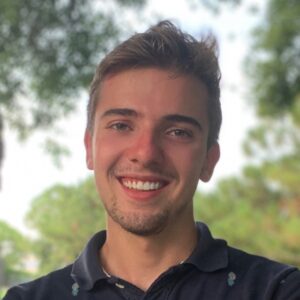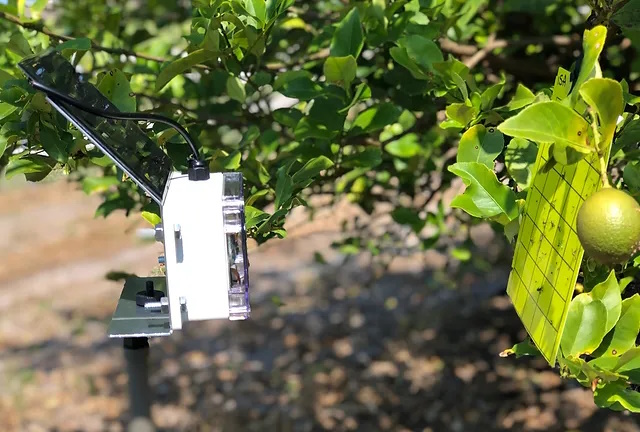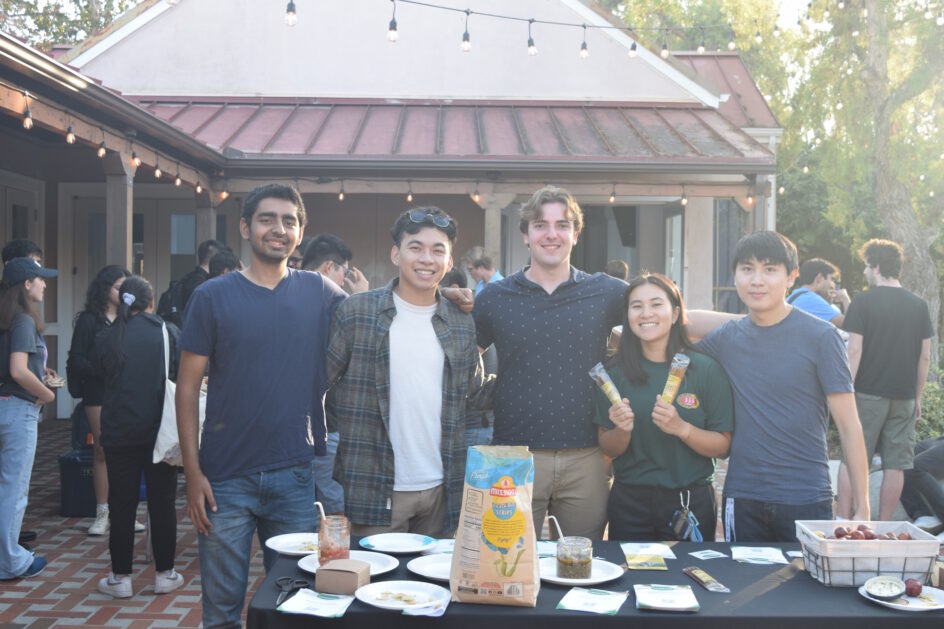Student Spotlight: Dylan Riffle Explores Intersection of Computer Science, Biology and Agriculture

Dylan Riffle’s technical expertise first emerged in elementary school when he started building video game servers for friends. By high school, he was developing Internet of Things (IoT) devices for Bioverse Labs, a company that leverages AI-powered technology to help farmers and governments monitor species in real time. Last year, as a computer science major in UC Irvine’s Donald Bren School of Information and Computer Sciences (ICS), Riffle and his teammates took first place in the 2022 Butterworth Competition for their online farmer’s marketplace, Leprendo. Here, Riffle talks about his various projects, rooted in his interest in exploring the intersections of computer science, biology and agriculture.
What sparked your interest in computer science and led you to UCI?
My interest in computer science began in fifth grade when I started building video game servers for friends, and it grew as I developed my first mobile app in the eighth grade. By the time I got to high school, I was hooked! The ability to create engaging projects out of nothing more than a computer and keyboard felt like it gave me the ability to breathe life into my ideas. In high school, I would develop everything from a protein visualizer (a system for visualizing complex biological protein structures) to a real estate-backed crypto currency.
I chose UCI for its opportunities in interdisciplinary research in biology and computer science, its beautiful campus, and proximity to the beach and thriving industries of Orange County. I definitely made the right decision, because I love it here at UCI!
Can you tell me about Bioverse Labs and how you first got involved?
At Bioverse Labs, we develop scouting technologies that track insect population dynamics on crop fields. I first got involved working as a contractor doing development on crop IoT devices when I was in high school. Over the last four years, I was promoted to lead IoT developer and then eventually to chief operating officer.
I developed our Bioverse One Sensor, which traps insects, takes a photo of the insect and then uses machine learning to speciate the trapped insect. The Bioverse Environmental and Crop Monitoring System can then deliver the precise population data captured by those sensors to farmers so that they know exactly where and when to spray pesticides on their fields. Ultimately, this information will allow farmers to reduce pesticide use. In a citrus field trial we conducted with the University of Florida, we found that our system can allow farmers to reduce their pesticide use by up to 40%.
You’re a joint inventor on the system, correct?
The Environmental and Crop Monitoring System is a patent that covers the sensor I developed along with its deployment methodology. It was extremely rewarding to work on and to be granted this patent after around 2 1/2 years of work on the sensor.

And what’s the latest on Leprendo?
I’m really excited about our online farmer’s market, Leprendo, which is still going strong. Since the Butterworth Competition, we’ve continued to work on it, and in May 2023, we will be releasing our new website — focused on delivering short-form videos featuring America’s farmers, blog content about food, and specialty produce for sale. Ultimately, we’re focused on helping consumers learn more about their food and discover novelty produce from around the world. Also, be on the lookout for our mobile app – coming soon!

You sound very busy! But any plans for Earth Day?
For Earth Day, I’ll be going to Crystal Cove beach to appreciate our Earth’s beautiful oceans and coastal ecosystems!
And how does climate change tie in with your computer science major and future plans?
I believe that computer science and the evolving technologies available to us are creating really exciting opportunities for everyone to work together to create new climate solutions. I’m particularly excited about the arising intersections of computer science, biology, and agriculture creating more sustainable solutions. I’m not sure about my exact future plans, but I’m interested in pursuing a Ph.D. in systems and synthetic biology to continue to explore how leveraging computer science and biology will save the planet.
— Shani Murray